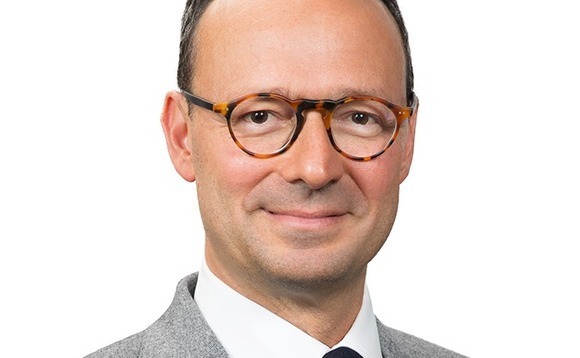
Fund focus: Baring sees stability in scale

Jean Eric Salata, CEO of Baring Private Equity Asia, argues that a $6.5 billion fund is not too large for Asia – he wishes he’d raised more – and explains why size increasingly represents a competitive advantage
At $6.5 billion, Baring Private Equity Asia's seventh fund is 60% larger than its predecessor and ranks fourth by size on the all-time list of pan-Asian PE vehicles. It could be pushed down to fifth within the year if KKR achieves the target of $12.5 billion set for its fourth regional fund. Yet Jean Eric Salata (pictured), Baring's CEO and founding partner, disputes the notion that Asian funds are getting too big. Indeed, he expects that – for a select group of managers – the growth will continue.
"I feel like we've undersized our fund, actually. I wish we had a bit more capital to work with over the next few years," he says. "You can look at the rest of the world as a guidepost for where we're heading. There's no logical reason why fund sizes, or deal sizes, should be any different in Asia from what they are in Europe or the US. It's just a question of the evolution of the industry and the market. In terms of the size of its economy, Asia is already larger than those markets."
Baring arrived at a target size for Fund VII – it initially sought $5.5 billion, did a first of $4.5 billion in July 2018 and then set the hard cap at $6.5 billion – in part based on the pace of investment in the previous cycle. The firm deployed more than $7 billion in equity, including co-investment, across 14 investments, building a portfolio that ranged from cement assets in Korea to precision engineering in Singapore to global corporate services.
The other aspect of sizing is an assessment of the opportunity set. Since Baring closed Fund VI in early 2015, Asia has seen about 50 buyouts of $1 billion or more, excluding infrastructure and utilities deals, according to AVCJ Research. A dozen surpassed $3 billion. In the five years before that, there were fewer than 25 $1 billion-plus transactions, with a couple topping $3 billion. Divestments and succession planning remain key themes, but they are applicable to more geographies and at larger check sizes. Take-privates and secondary buyouts are also more prevalent.
"When you talk about taking a public company private, the targets can be much larger. That's a result of increasing focus on shareholder value and underperformance of the public markets generally due to negative sentiment arising from the China trade war and other types of dislocations we've seen in India and Japan," he says. "As for secondaries, they are something like 70% of all deals in Europe but it's probably only 10% in Asia. That's increasing now and, again, it's part of the evolution of the industry."
Of those approximately 50 buyouts of $1 billion and above, half were corporate carve-outs, one third were take-privates, and secondary buyouts accounted for most of the rest.
Staying active
Overall private equity investment in Asia was lower in 2019 than the previous year as buyers were deterred by a combination of concerns about high asset valuations, a crisis of confidence in late-stage technology deals in China, and general geopolitical uncertainty. Baring, however, enjoyed what Salata describes as one of its busiest years, closing six deals. The most recent was Vietnam-USA Society English Centers, a Vietnam-based English language training business. Baring picked up shares from The Abraaj Group, which is now in winddown mode, and the founders for an 80% stake.
"The low-interest-rate environment that we're in has the effect of increasing the value of any kind of cash flow stream you're buying," Salata says. "So, if you look at valuation multiples, they're high. But at the same time, there have been a lot of dislocations in the past year that cause sudden pullbacks or significant changes in market conditions."
Japanese electronics manufacturer Pioneer Corporation fits this profile. The company rose to prominence in the 1980s with the introduction of laserdiscs, but it has struggled with more recent forays into car navigation systems and plasma displays. Baring privatized the business last year, having agreed to invest JPY102 billion ($905 million) through a two-stage revitalization plan.
While there is continued interest in opportunities emerging from corporate Japan, the GP is also tracking more growth-oriented plays around education and healthcare in emerging markets. Oftentimes, there isn't a geographic focus at all. Baring has carved out a niche in cross-border deals where a company outside the region is acquired with a view to developing its presence inside it. One example of this strategy in action – though the transaction has yet to close – is the $1 billion acquisition of Lumenis, an Israel-headquartered medical device manufacturer that has many customers in Asia.
"I think cross-border is an area of strength and differentiation for us because we're kind of a unique animal in that we are one of the largest-scale Asian firms, but we're fairly international in our outlook and construct. And then we're not part of a global platform where there might be conflict with the US or European fund," Salata observes.
Complexity counts
Like many of its peers at the top end of the market, Baring claims to pursue complexity. The firm has a shortlist of sectors it knows well: healthcare, education, IT services, business services, financial services, consumer, and advanced manufacturing. The strength of that knowledge – and the ecosystems that build up around it – are intended to function as a competitive advantage, enabling the team to get comfortable with an elevated valuation because they see upside potential. An active ownership approach then helps realize this potential.
"Investment selection may account only account for, say, 25% of the return. The balance comes from what you do with the business, how you transform it. I think that's really where the industry has changed a lot," Salata says. "We've changed a lot in how we underwrite investments and how we take an active role in running businesses. We are trying to decouple ourselves from the business cycle, buying companies that are going to be less driven by external factors and more by what we see in them."
To this end, Baring has strengthened its operational capabilities in recent years. The firm's 70 private equity professionals are supported by a dedicated operations team of about 10 plus a further 30 who offer functional expertise verticals like capital markets, legal and compliance, recruitment, and technology. The extent of these resources arguably represents another barrier to entry for those outside the top tier in terms of fund size.
"The industry is becoming more concentrated, but it is a very entrepreneurial industry. There will always be opportunities for boutique managers specializing in certain geographies or sectors or different sub-sectors of the market on a pan-Asian basis," Salata adds. "However, there are reasons why having scale is important for the types of deals we look at. You need the right resources to do it well and do it in multiple geographies. You are almost required to be of a certain scale in order to be competitive."
Latest News
Asian GPs slow implementation of ESG policies - survey
Asia-based private equity firms are assigning more dedicated resources to environment, social, and governance (ESG) programmes, but policy changes have slowed in the past 12 months, in part due to concerns raised internally and by LPs, according to a...
Singapore fintech start-up LXA gets $10m seed round
New Enterprise Associates (NEA) has led a USD 10m seed round for Singapore’s LXA, a financial technology start-up launched by a former Asia senior executive at The Blackstone Group.
India's InCred announces $60m round, claims unicorn status
Indian non-bank lender InCred Financial Services said it has received INR 5bn (USD 60m) at a valuation of at least USD 1bn from unnamed investors including “a global private equity fund.”
Insight leads $50m round for Australia's Roller
Insight Partners has led a USD 50m round for Australia’s Roller, a venue management software provider specializing in family fun parks.





